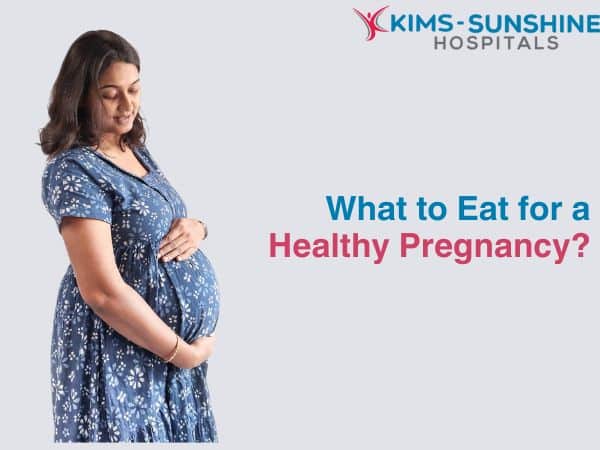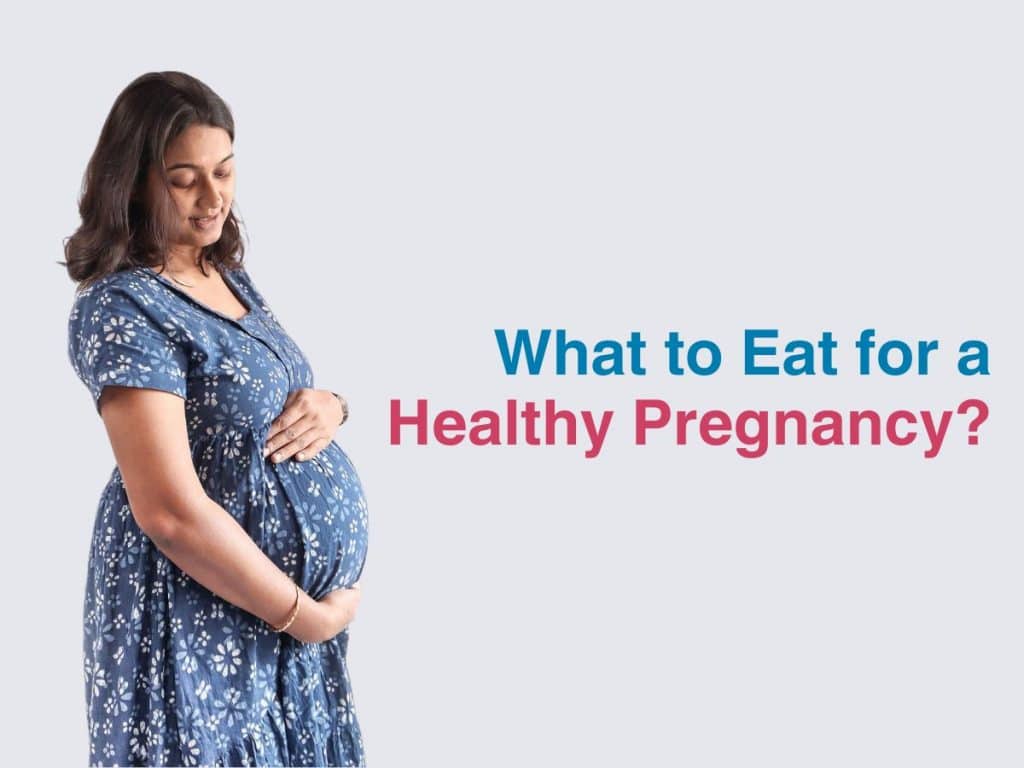
What to Eat for a Healthy Pregnancy?

The journey of pregnancy is a beautiful one.
But, it is natural to be filled with questions about nutrition at this crucial time.
And if you’re asking yourself? What can I eat during this time, the simplest answer is: you can eat almost everything. But, following a balanced meal plan can ensure a happy growth journey for you and the baby.
This blog will guide you through the best foods to eat, essential nutrients, and how to manage your diet to support both you and your developing baby.
Best Foods to Eat During Pregnancy
Eating various nutritious foods ensures that you and your baby get the necessary vitamins and minerals.
As a rule of thumb, it is better to include foods such as:
Leafy Greens: Spinach, kale, and broccoli are rich in folate, iron, and calcium.
Lean Proteins: Chicken, turkey, beans, and lentils provide essential amino acids.
Whole Grains: Brown rice, oats, and whole wheat bread offer fiber and B vitamins.
Dairy: Milk, cheese, and yogurt are excellent sources of calcium and vitamin D.
Fruits: Berries, oranges, and bananas supply vitamins, fiber, and potassium.
Essential Nutrients for a Healthy Pregnancy
Certain nutrients are particularly important during pregnancy, they help with brain development and healthy growth of the child. These include:
Folate/Folic Acid: Crucial for preventing neural tube defects. Found in leafy greens, legumes, and fortified cereals.
Iron: Supports increased blood volume and prevents anemia. Found in red meat, beans, and fortified cereals.
Calcium: Essential for the development of a baby’s bones and teeth. Found in dairy products and fortified plant-based milks.
DHA (Omega-3 Fatty Acids): Important for brain development. Found in fatty fish like salmon, as well as flaxseeds and walnuts.
Vitamin D: Supports bone health. Found in fortified dairy and sunlight exposure.
Pregnancy Diet Plan for a Healthy Baby
A balanced and nutritious diet is crucial during pregnancy for the health of both the mother and the developing baby. Here is a sample pregnancy diet plan:
Breakfast: Vegetable upma or poha with a glass of milk and a serving of fresh fruits like banana, apple, or orange.
Mid-Morning Snack: A bowl of yogurt with a handful of nuts and seeds like almonds, cashews, and melon seeds.
Lunch: Lentil curry (dal) with whole wheat chapati/roti, a vegetable curry or subzi, a bowl of rice, and a fresh salad.
Evening Snack: A glass of fresh fruit juice or buttermilk (chaas) with a few pieces of jaggery or dried fruits like dates, apricots, or figs.
Dinner: Grilled or baked fish or chicken curry with brown rice and a portion of cooked green leafy vegetables like palak (spinach), methi (fenugreek leaves), or sarson (mustard greens).
Bedtime Snack: A glass of warm milk with a few strands of saffron (kesar) and a spoonful of dry fruits like almonds, pistachios, or cashews.
Remember to include a variety of whole grains, lentils, lean proteins, fruits, vegetables, and healthy fats in your diet. Stay hydrated by drinking plenty of water, coconut water, or fresh fruit juices.
Foods to Avoid During Pregnancy
Certain foods pose risks to you and your baby, these include:
Raw or Undercooked Seafood: Risk of bacteria and parasites.
Deli Meats and Unpasteurized Cheeses: Potential for listeria contamination.
High-Mercury Fish: Such as swordfish and king mackerel, which can harm the baby’s developing nervous system.
Alcohol and Caffeine: Limit caffeine and avoid alcohol to prevent developmental issues.
Vitamins and Minerals Needed During Pregnancy
Prenatal Vitamins: Ensure you’re getting enough folic acid, iron, and DHA.
Iron Supplements: May be necessary if you’re not getting enough from your diet.
Calcium and Vitamin D Supplements: For those who are lactose intolerant or do not consume enough dairy.
How to Manage Pregnancy Cravings Healthily
Identify Nutrient Deficiencies: Sometimes cravings indicate a nutrient deficiency.
Healthy Substitutions: If you’re craving sweets, try fruit or yogurt. For salty cravings, opt for nuts or seeds.
Moderation: It’s okay to indulge occasionally, but balance it with nutritious choices.
Snacks for Pregnant Women to Maintain Energy
Trail Mix: Nuts, seeds, and dried fruit provide protein and healthy fats.
Cheese and Whole Grain Crackers: A good source of calcium and fiber.
Smoothies: Blend fruits, yogurt, and spinach for a nutrient-packed snack.
Vegetarian Diet During Pregnancy
A vegetarian diet can be very healthy during pregnancy with proper planning:
Protein Sources: Include beans, lentils, tofu, and quinoa.
Iron-Rich Foods: Spinach, lentils, and fortified cereals. Pair with vitamin C-rich foods to enhance absorption.
Omega-3s: Include flaxseeds, chia seeds, and walnuts.
Foods Rich in Iron for Pregnant Women
Red Meat: Beef and lamb are excellent sources.
Legumes: Lentils, chickpeas, and beans.
Fortified Cereals: Many cereals are fortified with iron.
Safe Seafood Options for Pregnant Women
Low-Mercury Fish: Salmon, sardines, and trout.
Shellfish: Shrimp and crab are generally safe when cooked thoroughly.
Conclusion:
Eating a balanced, nutrient-rich diet during pregnancy is crucial for the health and proper development of the baby. An Indian diet, with its variety of whole grains, lentils, fresh vegetables, lean proteins, and healthy fats, provides an excellent foundation for a pregnancy meal plan. By including foods like milk, yogurt, fruits, nuts, and dry fruits, you can ensure you get adequate amounts of important nutrients like calcium, folate, iron, and healthy fats.
Remember to eat frequent, smaller meals, stay hydrated, and avoid foods that may be unsafe during pregnancy. Follow this diet plan as a general guide, but feel free to customize it based on your personal preferences, cultural traditions, and any specific dietary needs or restrictions.
Most importantly, listen to your body’s hunger and fullness cues. A positive mindset towards nutrition during this special time will go a long way in ensuring a healthy pregnancy and a healthy baby. Consult your doctor or a qualified dietitian if you need personalized dietary advice. With some planning and care, you can nourish yourself and your little one optimally.
Frequently Asked Questions

Dr. Adti Goundan
MD (OBGyn, PGIMER) Fellow Fetal Medicine (FMF Accredited)
Consultant






